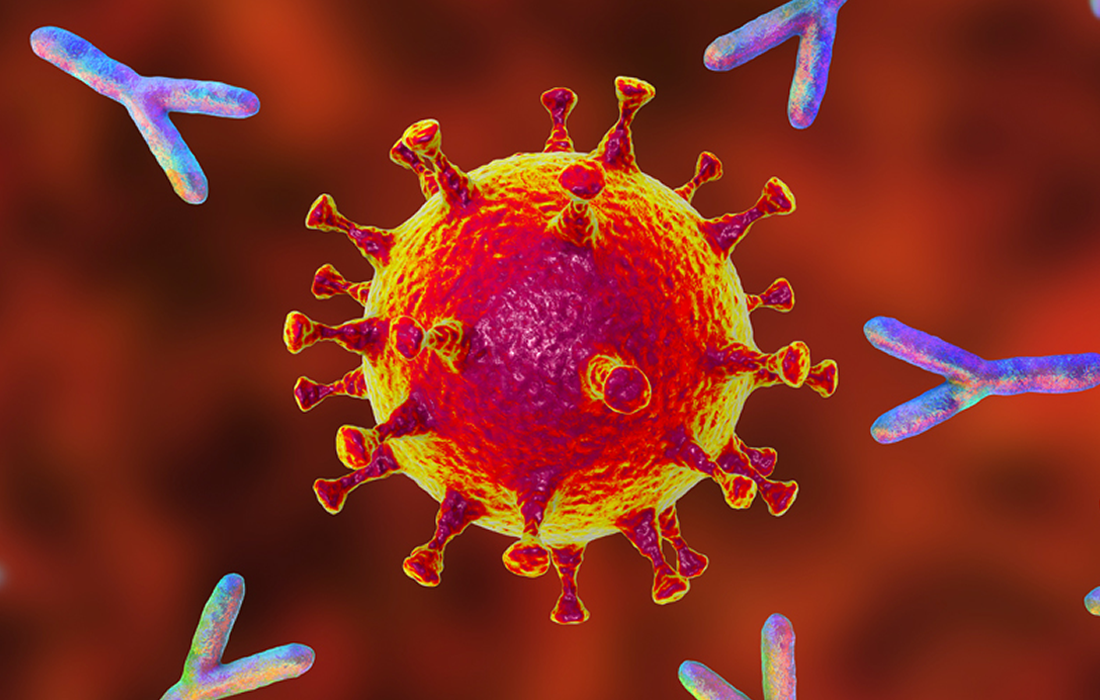COVID-19
Stem Cell Therapy for COVID-19. What Have Studies Shown 1 Year Later?
Coronavirus disease 2019 (COVID-19) is a highly infectious epidemic disease that has seriously affected human health worldwide. To date, however, there is still no definitive drug for the treatment of COVID-19.
Based on the results of several models and stage-clinical trials ARDS and sepsis, cell-based therapy, especially stem cells therapy has emerged as an alternative therapy for COVID-19. Mesenchymal stem cells are pluripotent cells obtained from different tissues, such as adipose tissue, bone marrow, and umbilical cord.
MSCs can alter immune cell function, modulate immune response, and reduce inflammation-induced lung injury. They can prevent apoptosis and regenerate lung cells, especially type II alveolar cells by producing growth factors such as keratinocyte growth factor (KGF), vascular endothelial growth factor (VEGF), and hepatocyte growth factor (HGF).
What Have Studies Shown?
Mortality
Multiple studies have shown that MSC therapy can significantly reduce the incidence and mortality of critical illness.
For example, a study by Shu et al. showed that intravenous transplantation of human umbilical cord MSCs (hUC-MSCs) was safe and effective in the treatment of severe COVID-19. Another study by Xu et al. reported significantly higher survival in patients treated with MSC (92.31%) than in the routine treatment group (66.67%).
Another study reported a 28-day survival rate of 91% in MSC-treated patients compared with 42% in non-treated controls, with the control group also showing a higher risk of death.
Systemic changes and symptoms
Studies have shown a shorten of time in clinical symptom improvement in COVID-19 patients. Lanzoni et al. showed a significantly shortened COVID-19 recovery time following MSCs treatment.
Several other studies have also demonstrated that MSC therapy can significantly expedite patient recovery. A recent experiment comparing pulmonary function recovery and comprehensive reserve capacity based on a 6-min walk test (6-MWT) found that walk distance was longer in MSC-treated patients compared with the controls.
In critically ill patients, the partial pressure of arterial oxygen: percentage of inspired oxygen (PaO2/FiO2) ratio showed improvement after MSC treatment.
A study by Shu et al. also reported significant improvements in weakness, fatigue, shortness of breath, and low oxygen saturation in MSC-treated patients compared with the controls.
Computer tomography (CT) imaging
Studies using CT imaging have reported that time of pulmonary lesions is significantly shortened in patients treated with MSCs. One study showed that the rate of chest imaging changes 1 month after MSC infusion was significantly improved in 85% of MSC-treated patients compared to 50% of control-group patients.
A phase 2 clinical trial also reported a significant decrease in total lesion proportion in the whole lung measured by CT from baseline to day 28 after MSC infusion.
Cytokines
Cytokine storms are considered one of the main characteristics of COVID-19 and the cause of lung damage and increased mortality. MSC transplantation may act as an immunomodulator in the development of cytokine storms caused by inflammation.
Several published clinical trials indicate that MSCs can effectively control the expression of inflammatory cytokines in COVID-19 patients. Several studies have reported that proinflammatory cytokines, such as interleukin (IL)-8, tumor necrosis factor (TNF)-α, CRP, IL-6, INF-γ, IL-2, IL-12, and IL-17A, decreased significantly after MSC infusion, while anti-inflammatory cytokines IL-4 and IL-10 increased significantly.
Mechanism of treatment
Studies have shown that MSCs can be safely used infused intravenously or via the endobronchial route in humans, allowing the cells to accumulate in the lungs to improve the lung microenvironment, protect alveolar epithelial cells, protect against pulmonary fibrosis, and improve lung function.
Umbilical cord stem cells
Many studies have been using umbilical cord derived MSCs in their clinical trials with good results.
A study by Lanzoni et al. showed that 2 intravenous infusions of UC-MSCs (100 M cells per infusion), given 72 hours apart, were safe in COVID-19 patients with acute respiratory distress syndrome. No adverse events were reported in the treatment group compared with the control group.
The treatment was associated with a significant decrease in a set of inflammatory cytokines that are involved in the cytokine storm, and was also associated with improved patient survival and time of recovery.
Conclusions
Although the studies have been small, the results have been overall positive and with minor or no adverse events reported. MSCs have demonstrated efficacy and safety in the treatment of COVID-19 patients, especially critically ill patients, improving not only clinical symptoms, but also hospital stay, cytokine release, and mortality.
Sources:
Lu, K., Geng, St., Tang, S. et al. Clinical efficacy and mechanism of mesenchymal stromal cells in treatment of COVID-19. Stem Cell Res Ther 13, 61 (2022). https://doi.org/10.1186/s13287-022-02743-0
Lanzoni G, Linetsky E, Correa D, et al. Umbilical cord mesenchymal stem cells for COVID-19 acute respiratory distress syndrome: A double-blind, phase 1/2a, randomized controlled trial. Stem Cells Transl Med. 2021;10(5):660-673. doi:10.1002/sctm.20-0472
Shu L, Niu C, Li R, et al. Treatment of severe COVID-19 with human umbilical cord mesenchymal stem cells. Stem Cell Res Ther. 2020;11(1):361. Published 2020 Aug 18. doi:10.1186/s13287-020-01875-5
Image from:

